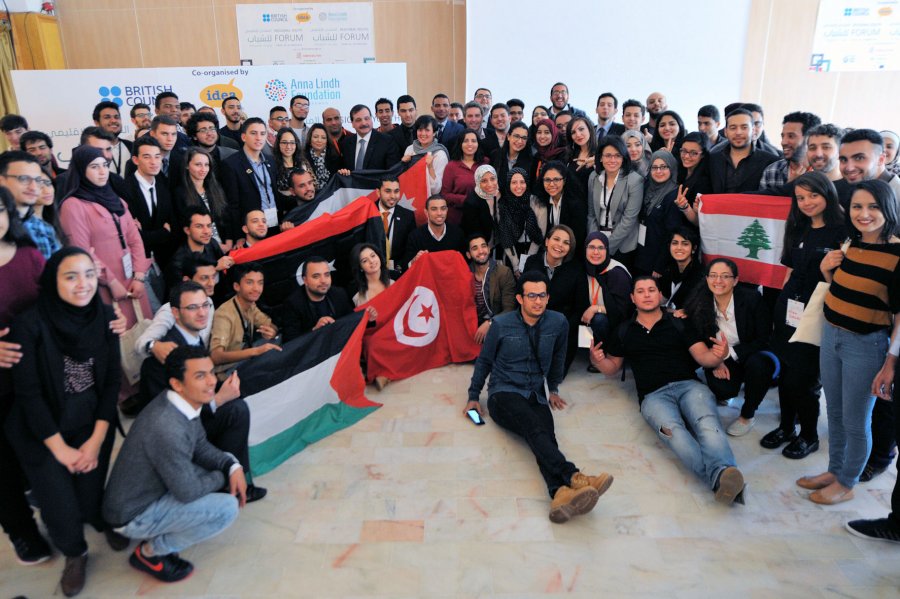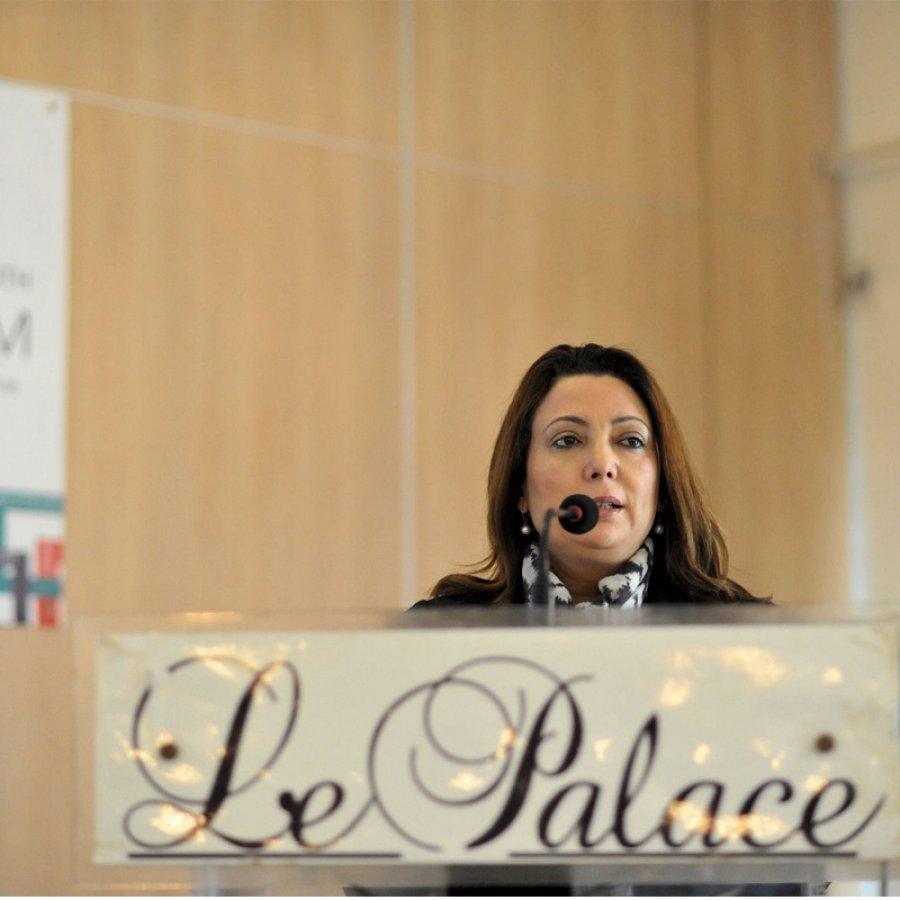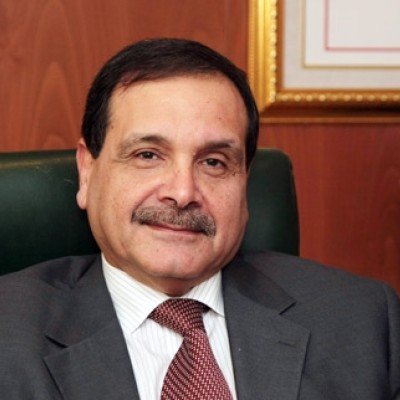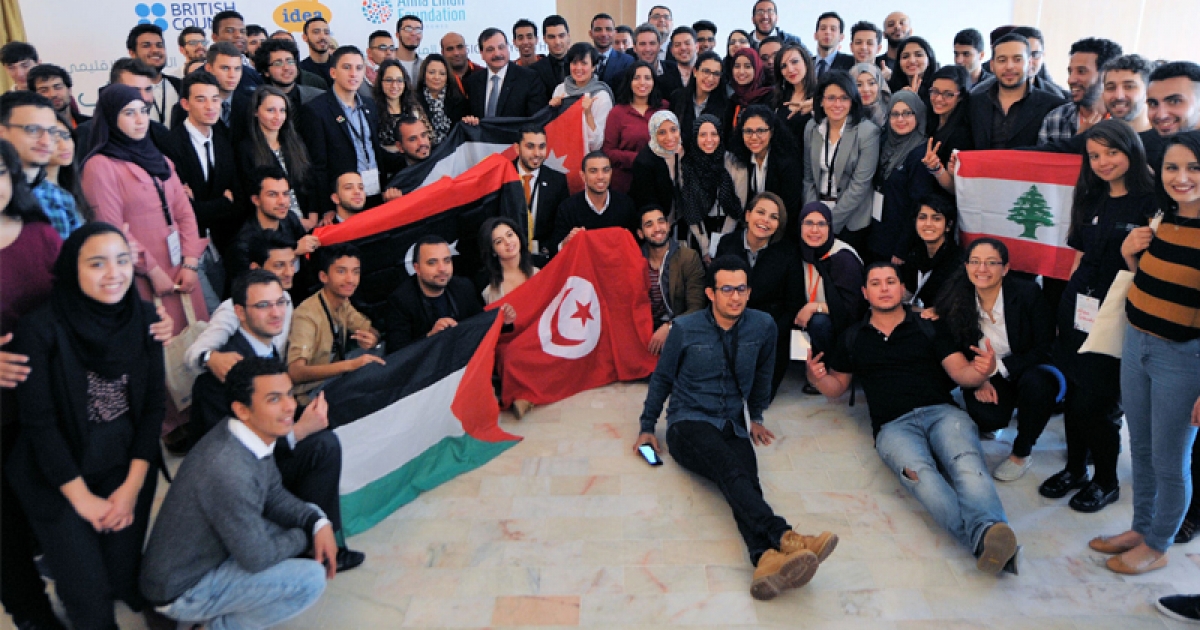‘We Are Ready for Dialogue’
The first Regional Forum of the Young Arab Voices, co-organized by the Anna Lindh Foundation (ALF) and the British Council, gathered in the Tunisian capital more than 80 emerging young leaders from eight Arab countries of the Middle East and North Africa (MENA) region to compete in debating topical and controversial issues such as media censorship in reporting terrorist attacks, banning religious schools, and compulsory quotas for youth in local elections.
The Forum was a landmark activity in a five-year programme that has brought to the heart of the MENA region the traditional democratic approach to conflict in perceptions, crafted around a carefully organised and structured dialogue. More than 100,000 young people from Lebanon, Palestine, Jordan, Egypt, Libya, Tunisia, Algeria and Morocco have had the opportunity to develop their skills in public debate and obey the logic and rules of parliamentary systems, while arguing in favour or against motions on topics affecting the countries of the entire Euro-Med region.

In a plenary session at the closure of the competition, the participants issued a declaration stating that “it is more urgent than ever to create new opportunities for opening up dialogue across Europe and the Mediterranean”. The logic of terrorism is completely rejected in the declaration that explicitly condemns the recent bombing in Brussels and acts of violence elsewhere in the Arab world and in Turkey.
“In our debates we have shown that there are different ways of meeting the challenges of life affecting societies both in the MENA region and Europe”, states the declaration. “We need more opportunities for this kind of debate”, it adds. “It will reduce incentives to extremist voices and reduce the space for intolerance which is feeding terrorism. It will allow us to understand each other better, and to build a circle of dialogue and coalition of common values. We want to involve many millions more voices in this process, all those silent majority who are involved in positive action but do not find yet their voices heard. We want an inclusive dialogue to find common ground among youth to the north and south”.
“Our message to the West is that we are ready for dialogue”

Equally explicit was the message brought to the Forum by Ouided Bouchamaoui, member of the “Tunisian Dialogue Quartet” awarded the 2015 Nobel Prize for Peace for its successful efforts to promote the development of civil society and democracy in the country.
"Our message to the West is that we are ready for dialogue”, said Ouided Bouchamaoui. “The best way to fight radicalization is by being present in civil society and being active in decision making”, she added expressing “pride in our youth, our unity and our skills for dialogue”.
According to sources close to ALF, the appeal to dialogue on a wider Euro-Med level, with the involvement of young debaters from Europe, may well be answered in the near future as the ALF continues building its mandate as the central institution for intercultural dialogue across the Mediterranean. It is believed that there are striking similarities in the critical factors affecting the youth of the North and the South of the Mediterranean region. The YAV programme is seen by its supporters to have demonstrated that the young are much more focused on their careers, livelihoods and communities than thoughts of radicalisation. They want to be regarded as part of the solution, and not the problem, in key issues in the region; they feel that they have little voice and little political space, that the media portray them negatively, and that there is not enough energy dedicated to combatting stereotypes and misconceptions.
Published: 31/03/2016



